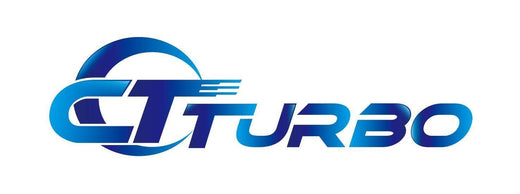Install Guide & Pre Checks.
Now That You Have Your Shiny New Turbo In Your Hands And Getting Ready To Fit Her Up, You Need To Stop And Check a Few Things Over Before Installing.
The Number 1 Reason For a New Turbo To Fail Is Poor Diagnosis Or No Diagnosis At All!
Most People Including Some Untrained Workshops Will Just Replace The Turbocharger And Send You Off On Your Way, This Is The Worst Thing You Can Do.
The Best Way To Go About Fitting Your New Turbo And Ensuring Its Going To Go The Distance Is,
- Measure & Verify Your Hot Oil Pressure (Hot Idle & Hot 2000RPM), This Will Confirm The Oil Pump / Bearing Clearances Are Correct And Your Turbo Wont Drop Its Bearings After 2 Mins Of Driving.
- Measure & Verify Boost Pressure, This Will Confirm That There Is No Overboost Present And Will Also Confirm If Any Boost Leaks Are In The System, Both Can Lead To Premature Turbocharger Failure.
- Replace Your Engine Oil / Oil Filter & Air Filter, New Oil & Oil Filter Will Ensure A Clean Stream Of Oil To Your Bearing System, This Is Critical If You Have Had Leaking Injectors And The Oil Has Turned Gritty And Or Sludgy. A New Air Filter Will Also Ensure Your Compressor Wheel Wont Be Damaged From Debris. Handy Tip Is To Clean Out The Airbox And Inlet Pipe As Things Get Caught In Them!
- Check EGR Valve & Inlet Manifold, Both These Parts Commonly Clog Up On Diesel Vehicles. Ensuring These Are Clean Will Prevent Carbon Deposits Going Through You Engine Not Only Damaging A Intake Valve But Also Damaging Your Turbine Wheel Causing Premature Failure.
- Exhaust System Is Another Critical Part, Bent Exhaust Manifold Flanges Are Super Common On Some Vehicles, This Often Makes a High Pitch Squeal That Replicates a Faulty Turbocharger Often Confusing People. DPF & Catalytic Converter Blockages Often Cause The Turbine Side Of The Turbocharger To Overheat And Or Melt, This Part Must Be Checked Or Cleaned Out Especially If Oil Or Water Has Gone Through It.
- Intercooler & Pipe Work, Intercoolers Get Filled With Oil Overtime Due To Blow-By Passing Through Them, When Doing Your Turbocharger It Best To Remove And Clean It Along Side A Pressure Test To Ensure Its Not Leaking. The Pipe Work Is No Different, Remove & Clean And Also Inspect For Cracks / Splits.
- Oil Lines, Oil Lines Would Have To One Of The Most Critical Parts For Your Turbocharger. This Item Should Always Be Replaced When Or Cleaned At A Minimum, This Part Often Gets Oil Coking In the Bends Due To Its Small Inner Orifice. Brake Cleaner And Or Carby Cleaner Generally Gets The Job Done Along With High Pressure Air To Blow Them Out, If This Fails Then An Ultrasonic Cleaner Will Get The Job Done.
Doing All These Jobs Above Before Starting Your Car And Enjoying Your New Turbocharger Will Ensure It Lasts The Life Of The Car.
